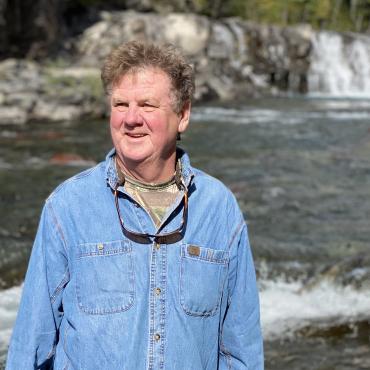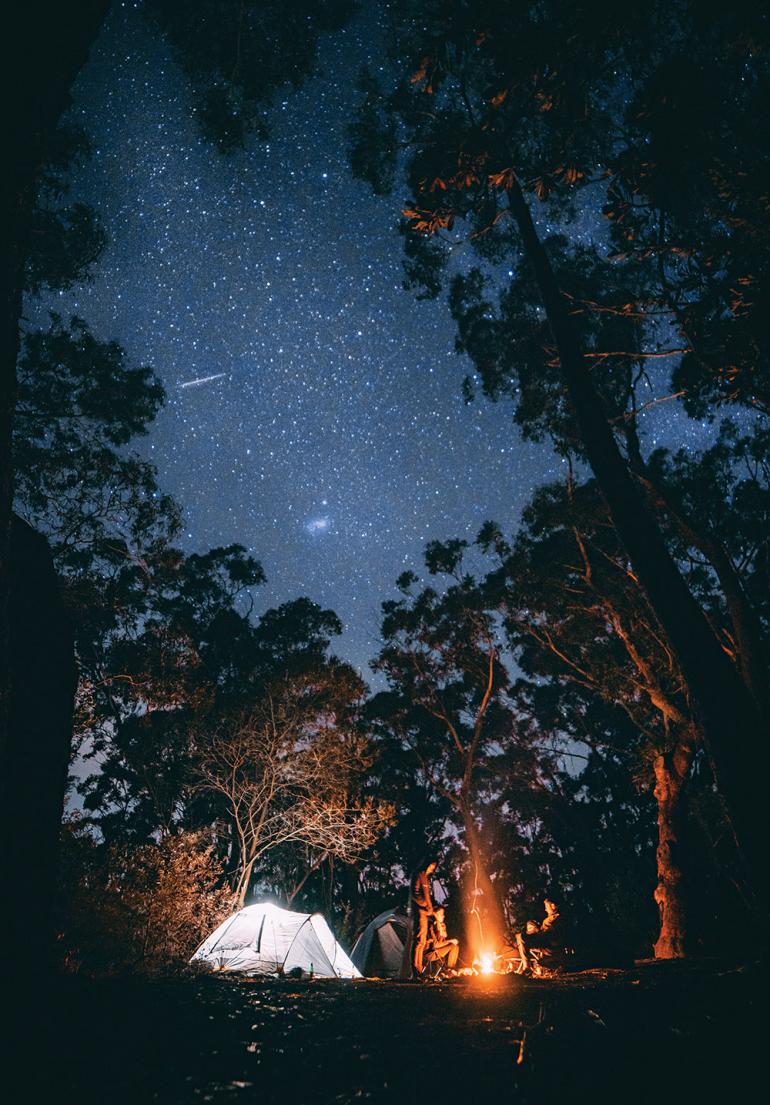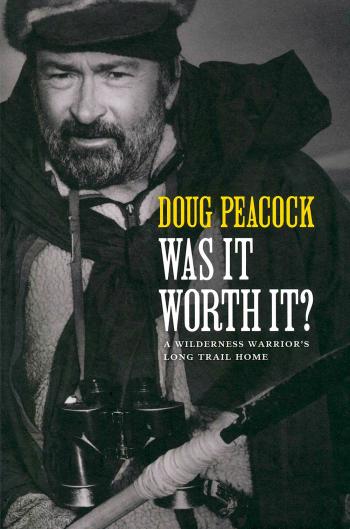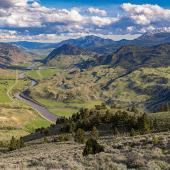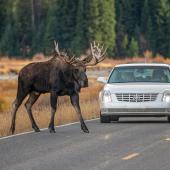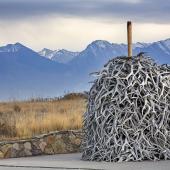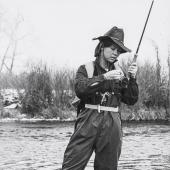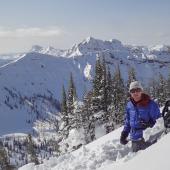Hayduke Lives!
Doug Peacock has a new book out.
The swish of snowshoes through the lodgepole pines was almost undetectable, the sound mixed with the brisk spring breeze. The swishing quickly turned to wallowing as a man with a faded army-green canvas pack post-holed through the deep snow to the edge of a clearing, his gnarly beard covered in frost and frozen icicles. Down a gentle slope, a small family of buffalo pawed at the partially frozen meadow, looking for early sprigs of green grass.
Doug Peacock slowly glassed the horizon. In his war-fogged mind, he hallucinated—he was in danger of being captured, though now not by Viet Cong, but by a National Park Service backcountry ranger. He kindled a small fire to ward off the chill, the smoke mixing with sulfur-laden fog from nearby geysers, camouflaging his campsite. Soaking in a hot pool, he drifted in and out of consciousness, his mind wandering from the humid Asian jungle to the brilliant carpet of stars overhead. A snort from the big bull startled him and he crawled silently from the spring, slid into his big down bag, and fell fast asleep.
“I didn’t choose to be a writer; it sort of fell upon me when I came back from Vietnam in 1968 where I was a Green Beret medic,” he explains. “You know, like a lot of other Vietnam veterans, I was quite out of sorts, and the place that I’m comfortable, the place where I grew up through my father, was the woods. So like a wounded animal, I crawled back into them.”
In his new book, Was It Worth It? (Patagonia, $28) Peacock reflects on a life spent trying to protect our vanishing American wildness.
Peacock’s friendship with Edward Abbey is foundational in his lifelong commitment to fight for wilderness. Together, they formed a tribe of environmental writers: Peter Matthiessen, Rick Bass, Terry Tempest Williams, and others who dared speak truth to power.
“Ed Abbey blasted onto the popular scene in 1968 with Desert Solitaire. As I had just returned from Vietnam and was never able to pry loose the issue of war in Asia from the war on wildness back home, I view the publication of Desert Solitaire and the origins of the more militant branch of the modern western conservation movement as at least synchronous,” Peacock wrote in an essay, “Notes from the Arroyo.”
In 1975, Abbey published The Monkey Wrench Gang, a novel spirited in the rise of the radical wilderness movement. His eccentric character, George Hayduke, was based largely off Peacock’s militant attitude and actions. Today, lots of dirtbag Subarus and rusty old pickups sport “Hayduke Lives” bumper stickers. The doormat at Peacock’s Paradise Valley home boldly states, “Come Back with a Warrant.”
“The natural world is disappearing everywhere, and it is our home,” Peacock says. “It’s essential to our own survival as a species. Somehow, we know it in our guts because that’s where we came from and we’re losing it.”
Thirty-three years ago this spring, Peacock buried Abbey in a secret spot in the Sonoran desert. Good friends are hard enough to find, but one who spends two days carrying your body into a desolate wilderness while defying all manner of law? Now that’s the kind of friend we should all have. So now, with Abbey gone but not forgotten, Peacock is still walking point in the constant battle for the wild.
For over 50 years, he has fought the good fight for the Greater Yellowstone Ecosystem and its four-legged residents. Be it natural-resource extraction, climate change, or thieving politicians, the western wilderness is “lurking on the brink of yet another abyss—a human-waged war upon life on Earth, upon wilderness, and the wild creatures who live there,” Peacock laments.
Was It Worth It? is definitely a worthwhile read. Learn about Peacock’s life exploring exotic spots with friends, searching for jaguars, Siberian tigers, buffalo, polar bears, and grizzlies. And while you do so, tip a glass of your favorite beverage, and give thanks to a man who has dedicated his life to protecting the wild.


